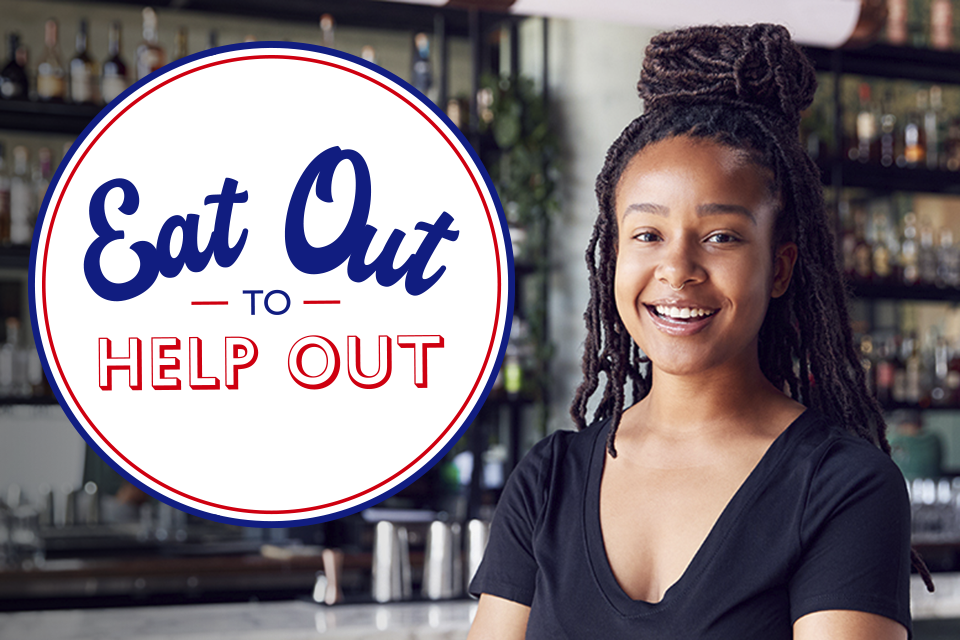Black Eats LDN is Britain’s best and most popular roundup of Black-owned restaurants through a directory that features more than 300 Black-owned hotspots primarily in London and around the UK.
The Black Eats LDN directory features Black-owned restaurants that allows foodies to choose a restaurant by filtering dietary needs and cravings. This means you can easily search eateries that offer halal and vegan offerings, to the best brunch spots and places with outdoor seating. It’s as easy as pie… literally!
The pandemic has been detrimental to all businesses, but Black-owned businesses have taken some of the biggest hits as they are more likely to employ and attract Black people, who have been disproportionately affected by COVID-19 and its mortality rates.
The enterprising founder behind Black Eats LDN is 27-year-old Jackson Mclarty who, having seen the impact that the Coronavirus pandemic was having, decided to create the platform to direct people to Black-owned restaurants with the aim of supporting our community of restaurant businesses and entrepreneurs.
As a foodie himself who regularly uploaded great food spots to his social media channels, Jackson found he received a lot of attention from his followers for advice on the best places to indulge. That’s where Black Eats LDN was born, knowing that there was a gap in the market and the importance of supporting his community, Jackson founded the directory using his skills from his career as an account director in marketing.
A few days after their Black Eats LDN Instagram post, which showed a timely compilation of 55 restaurants with outdoor seating – went viral, we spoke exclusively to Jackson to find out more about his plans for the directory and the importance of spending your Black Pounds for your next restaurant outing.

In your words, what was the inspiration behind Black Eats LDN?
I’d go to a lot of restaurants before the pandemic kicked in last year, not just Black-owned restaurants, but restaurants in general. I used to post photos on my personal social media account and people would always reply with “oh that looks so good, where’s this? You should start a food account; you should make a food blog!” That was the first trigger, but the thing with that is, I didn’t want it to just be like a generic food page which is why I never made one. There are so many other people doing that. Why would I want to do something that everyone else is doing? Essentially, the unique point of Black Eats LDN is that it’s exclusively for Black-owned businesses, so that was the inspiration behind it.
Did you think there is a need for this type of platform and directory?
Definitely! I saw an article by Vice saying that only two out of 328 Black-owned restaurants were reviewed between January 2019 and January 2020, which is like 0.06 percent of restaurants being reviewed are Black-owned. Obviously [Black-owned restaurants] were simply not a consideration for the mainstream media channels, and constantly overlooked, despite all the cosmetic diversity statements and inclusion stuff that they waffle on about. I wanted to create a space that wasn’t currently a thing, to shed light on these businesses and give them the spotlight that they deserve.
I launched Black Eats LDN in mid-August which was like midway through the Government’s ‘Eat Out To Help Out scheme’. I wanted to help out Black-owned businesses.
Also, if you type in online ‘Black- owned restaurants in London’, for example, it will come up with a lot of blogs where it might say 15, 20 or 25 Black-owned restaurants. Within that list of 20, 25 or however many it is, often enough you’ll find restaurants that aren’t actually Black owned on that list. You’ll find restaurants that are selling African or West African or Caribbean food, but the owners aren’t actually Black, so there was a lot of false information out there. You would find lists of Caribbean restaurants that would include places like Turtle Bay [which is not Black-owned], so I was just tired of seeing that really.

How many Black-owned restaurants do you feature in your directory?
The directory currently has more than 300 across the UK. Most of them are in London, but we’re always accepting new submissions across the UK, both in and out of London and researching to find more because we want to be present in every city across the UK not just London.
I wanted to make the directory as inclusive as possible as well, which is why the directory can be filtered by vegetarian, vegan, halal and even down to stuff like wheelchair access as well.
How badly have Black-owned restaurants been affected by the COVID-19 pandemic?
Overall, the hospitality sector has been hit hard, but definitely Black businesses in particular suffered. For Black-owned businesses to get funding and to get access to that funding, to be able to adapt through the different tier restrictions [is difficult]. For example, moving to a delivery service where they may not even have had the infrastructure in place previously or maybe not having the funding or the staff or whatever, is something that a lot of businesses didn’t have in place, which is why I work with platforms like Uber Eats to help them get that in place. Moving with the times and adapting costs money, which is something that is not always available. Also, Black people are affected disproportionately by COVID-19 and that doesn’t only impact the actual owners of the businesses, but also a lot of the target audience of their actual clientele too. Both sides, the ownerships and the clients are doubly impacted.
Read: Minister meets Black biz owners to tackle their obstacles to success
Did you think people would have such a big appetite for this type of directory?
I think from the beginning I knew [it would take off], I think that was why I was so hesitant to just set up a food blog in general, that wasn’t unique for me, which is why I focused on Black-owned restaurants.
A lot of the work goes on behind the scenes, just finding the restaurants and verifying that they’re Black-owned, looking through every single menu of every restaurant that’s listed to filter it down to whether it’s seafood, if it’s halal, if it’s vegetarian if it’s West African, if it offers dessert, if it has cocktails. All of those things that we’ve filtered down by – no one else is doing that. I always knew that this would be the number one source, no one else is competing or doing the type of research we’re doing, I always knew it was going to be a success in that sense.
In terms of the social media roundup that we put together, I think people always want a value exchange when they’re following Instagram accounts, so that’s what we do with the information that we provide. People want directories in a different format and a digestible format which is why we break it down by areas like North London, North-West London, East London or wherever, to actually make it shareable content, something that people can put on their Instagram story, send to a friend, bookmark and then have that list to reference when they want to go out dining. I think the latest list hit almost 30, 000 likes! That was unexpected.
How have you impacted some of the restaurants you feature?
There’s this one patty company that when they launched had about 75 followers. I could see the potential in the business because their packaging, the quality of the product and their website looked professional, everything they were doing looked really good. They just didn’t have the exposure, so I reached out to them and I said, “hey let me shine some light on your business through my platform.” I remember at the time we had about five or six thousand followers. We posted them and they literally sold out for three or four weeks running in terms of their deliveries and they grew to almost 800 followers during that time.
We see a direct impact as soon as we post a review on our Instagram; their reservations go up; more footfall and we can evidence this through the Instagram insights just by looking at how many people have saved the post, it’s almost an indicator that someone is considering visiting or is going to visit.
In the case where we do promote, for example an exotic fruit company that we collaborated with, they used a discount code so we could track the sales directly and that was like four figures in sales, so we know definitely we’re having an impact.
Visit the Black Eats LDN directory.













